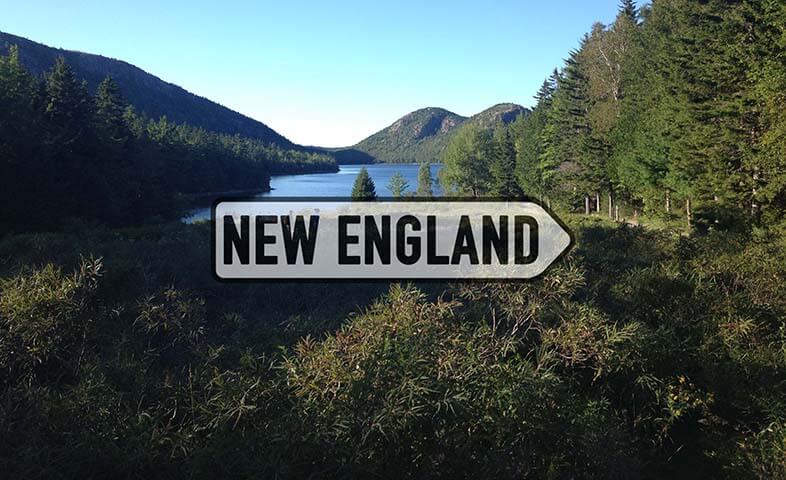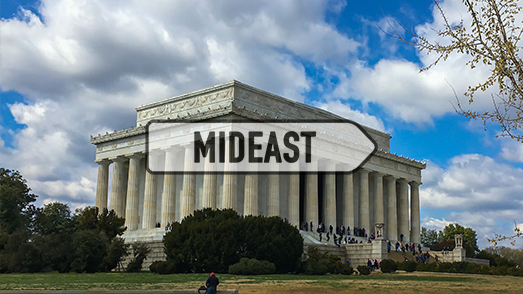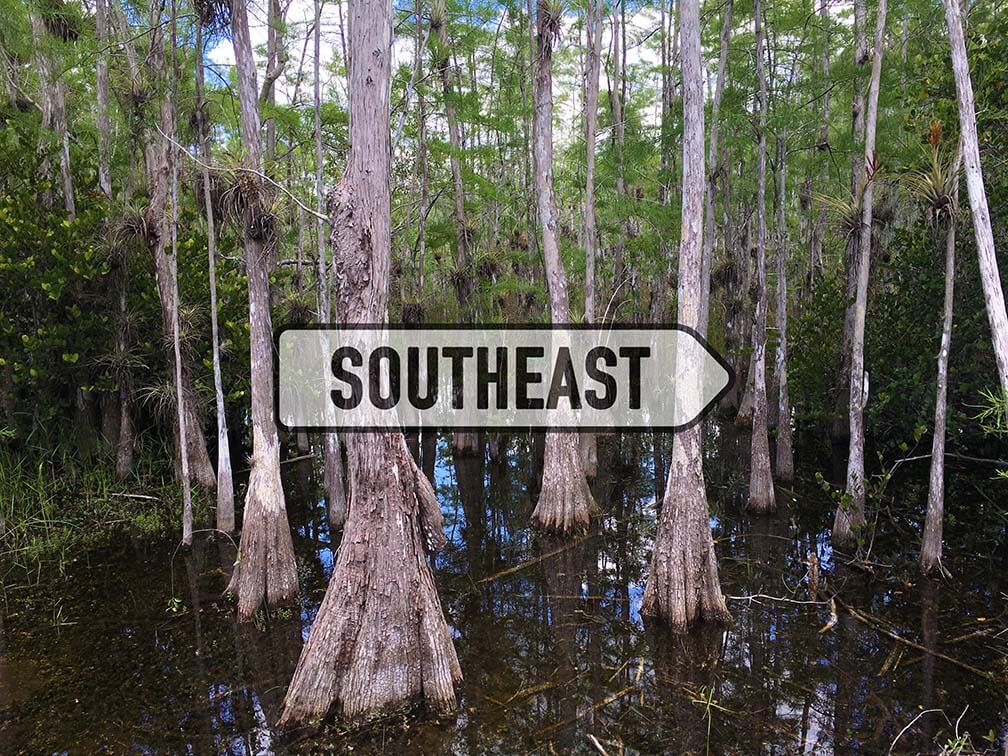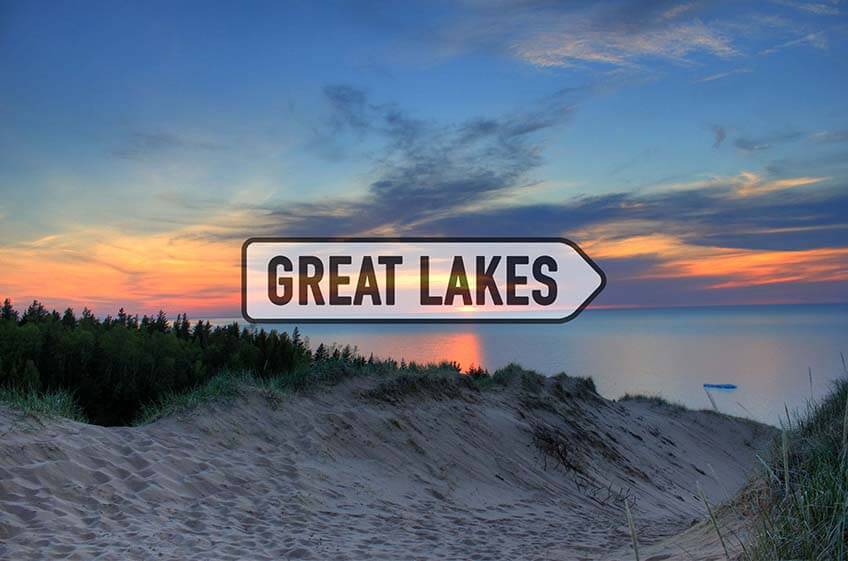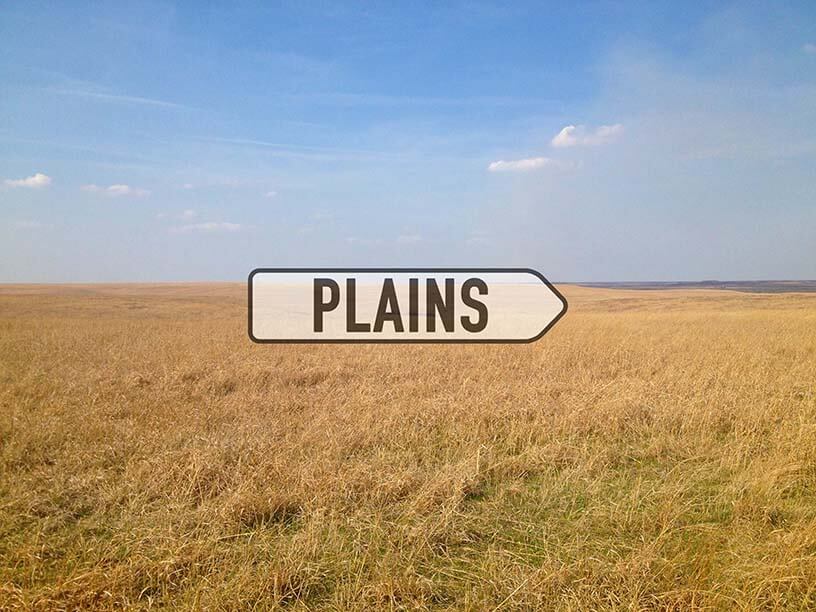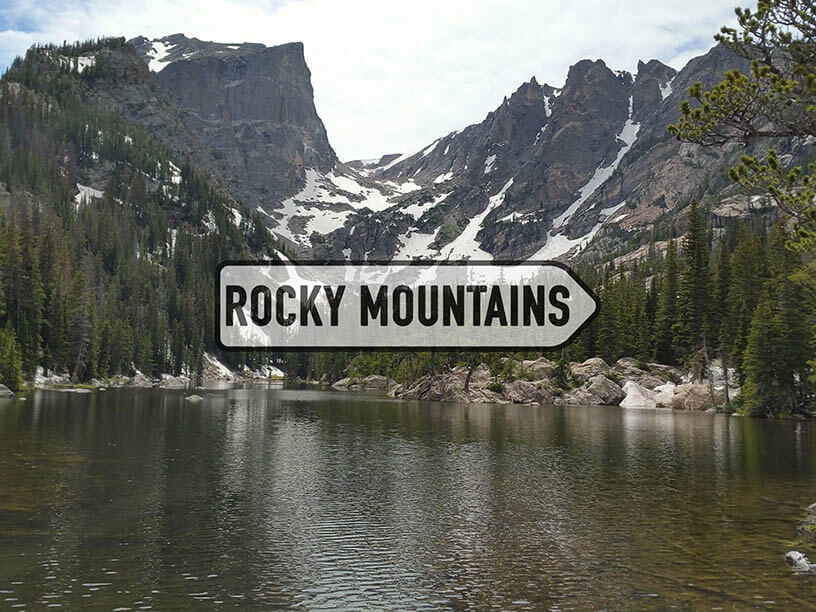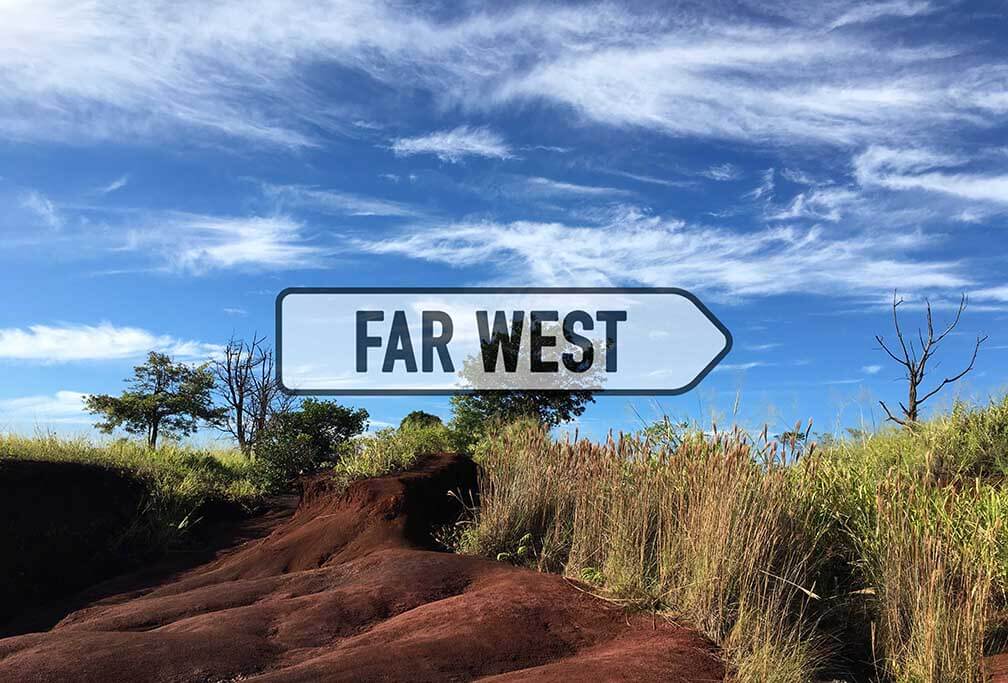Double Vision
By Andrea Ross
Darren and I hiked up the steep flank of Mount Humphreys. Within a few hours, we reached the snow-covered 12,600-foot summit. The highest point in Arizona. The view was clear: we could see almost every place we’d hiked together in the southwest. To the east lay Buckskin Gulch. Mount Taylor to the southwest. Escalante Route in Grand Canyon and the Verde Valley to the south. The previous week we camped there to watch the mysterious ascent and descent of green-striped Aurora Borealis rays. I had never seen them before, electric curtains rising and falling in the theater of night. I felt that something important was happening—seeing the northern lights from Arizona is very rare. I just didn’t know what that something was.
I looked like some mountain man’s girlfriend, and sometimes, that’s all I felt like--my blond ponytail braided against the wind, hair flying like dandelion fluff around my face, sunburned nose. It was easy to hide in Darren’s shadow, to let the world knock on his door first.
Image courtesy of Andrea Ross
We met when I was 22 and he was 24. We both worked as teachers at an outdoor school. We lived in ratty trailers deep in the redwood forest of coastal California. I loved his semi-feral look—starry green eyes and a crazy thicket of brown hair. He wore the same pair of faded black climbing pants every day. I was also attracted to his easy giggle and his staunch environmentalism. Darren introduced me to life immersed in the outdoors. We spent weeks at a time living out of our tent as we climbed, backpacked, and explored the wilds of the western U.S. Now, I was about to take my next step: I had just completed an Emergency Medical Technician class, and soon I would go to Alaska for five weeks to be trained as a wilderness guide. This hike up Mount Humphreys would be my last trip with Darren before I ventured north on my own.
On the summit, we spotted other hikers, including one man talking into a radio. I wondered why a person would struggle all the way to the peak only to talk to someone far away. These were the days before cell phones.
We continued on, and peered into Humphrey’s crater. Below, in the basin's snow and rock expanse, I saw people tugging at someone. Giant inner tubes lay like huge black doughnuts around them. I realized someone was hurt, made no move toward them. I didn't want to. But Darren nodded at me, and we glissaded down the slushy snow to them.
They all appeared to be in their mid to late teens, and they all had crew cuts. The tallest of them told us, in a Southern accent, that they worked at a summer camp, and they were there sledding on their day off. Their buddy, Mark, had crashed into the rocks. They were trying to get him off the snow.
My stomach churned. Mark had blue lips, and blood curled through his sand-colored hair. He was conscious, but his blue eyes looked dull, sleepy. His body was limp. His clothes were soaked through from the wet snow. The tall guy approached Darren and introduced himself as Bert.
I felt mute. Maybe they can take care of him, I thought. I considered turning around and hoofing it down the mountain. I had just finished my EMT course. I wasn't sure I was good enough at emergency medicine to take on that responsibility.
Darren interrupted my thoughts. “Andrea you’re the EMT here, you have to take care of this."
It was a command. It was also a tacit endorsement of my ability. I was used to Darren pushing me. All those places we had hiked together? In Buckskin Gulch, he had urged me through a long slot canyon of chest-deep sludgy water as dead ravens floated past. Darren hadn't minded—it only reached his waist. One blistering hot afternoon in the Grand Canyon, Darren convinced me to traverse a cliff to the next beach. He didn’t have any trouble. I slipped into the icy river. On Mount Taylor, he convinced me to hike across snowfields without an ice axe. I cracked my knees against rocks after sliding down an ice field. But this time, he was right. The crewcuts swarmed around their buddy, drawling protectively, not doing much else. Darren looked at me expectantly. I felt something move inside me.
I turned to face the first task: to convince a dozen teenage boys to remove all of Mark’s sopping wet clothing and begin warming him with their own bodies.
“Okay, you guys —” my voice cracked.
I pulled my jacket around me for courage as much as warmth as I yelled instructions.
Soon, Mark was stripped and in dry clothes. His friends huddled, re-warming him. He wasn’t bleeding much, but when I touched his neck and spine, he winced, trying not to cry out. Possible head injury. Possible neck injury. Blue lips. We’ve got to get him out of here, I thought. It was getting dark and cold. I remembered the guy with the radio. Maybe he could help. I asked Darren to look for him, and he jogged off up the mountain.
When they returned, the man with the radio already had the sheriff on the line. The dispatcher told us the rescue crew should be there in three or four hours.
My stomach clenched. I held my breath. I was pretty sure Mark needed to get out of there sooner, but what were the consequences if I called for a helicopter and he didn’t need it? I went with my gut and said we needed an air evacuation.
“…Okay, if you really think you need one, I’ll call a helicopter. Stand by for further information, Mount Humphreys.” That was me—Mount Humphreys. I hoped I was doing the right thing.
The helicopter medic came on the radio. I told him Mark’s condition: “Pulse one-twenty-respiration-fifteen-possible-Head-injury-Possible-spine-injury-Patient-is-semi-alert-and-oriented-Pupils-are-equal-and-reactive-to-light-Slight-cyanosis-around-mouth-Spine-painful-to-touch-Bleeding-from-head.-Treating-for-shock-and-trying-to-keep-him-immobile. Over,” I said, trying not to forget what I’d learned in my EMT class.
“I don’t know who you are, Mount Humphreys,” he said, “but you’re doing a great job.” I smiled a little, relieved.
Image courtesy NPS.
We battened down everything, except some red rain pants, which became the windsock. Then we all lay prone on the gravel and waited. As the helicopter landed, I saw a man in the doorway, beckoning me. He brought out a gurney, and we belted Mark into it, carried him to the helicopter and secured him inside. Then, it lifted off.
We all stood for a moment, stunned. I had assumed Darren and I would ride in the helicopter too. With nothing else to do, we started hiking. The crewcuts barreled straight downhill, cutting switchbacks to get to the hospital quickly. Darren and I didn’t have headlamps, so we took the trail to be surer of our footing in the darkness. I trotted wordlessly, listening to my breath’s percussion. Soon, I watched boulders and aspen trees duplicate every time my feet hit ground. We had been at high elevation all day. I had been worrying and problem-solving, trying to be brave and smart. Now, dehydration and altitude sickness set in, and my body started to fail.
When we reached Darren’s car, I had double vision. I hunched over and vomited. Back at his house, my head hurt so badly that I couldn’t drink or eat anything, so I lay alone in the dark with a wet towel over my eyes, replaying in my mind what had happened on the mountain, wondering what was happening to me.
I had become another victim of the accident, the primary thing I learned not to do in my basic First Aid class. I felt stupid and scared. How long would the effects of dehydration and altitude sickness last? Would I be able to go on my Alaska trip? I was supposed to leave in a few days.
Darren ducked his head into the dark room to check on me, but I was alone with my fear until he came to bed hours later. I knew he would make sure I was alright. But I also knew he couldn’t take care of me in the way I deeply longed for. I wanted him to cure my lack of confidence, heal my feelings of inadequacy, erase my old fears and scars. But I was beginning to understand that only I could do those things for myself. I needed to take responsibility for my own life, my own decisions.
I awoke the next morning feeling severely hungover—headachy and brain-addled, but with normal vision. While Darren slept, I crept out of bed and drove to the hospital in Flagstaff.
I said hello to Mark, who smiled from his bed, looking sheepish. He had broken three ribs and his head gash had needed stitches, but he’d be released from the hospital the next day. We chatted a little, and he thanked me for helping him.
I left the hospital to go pack for my Alaska trip, feeling a little better. Perhaps because seeing Mark confirmed that the rescue had been a success. But the thought of leaving for Alaska was almost as painful as the previous night's headache: Darren and I had been together in so many unusual and challenging situations, I sometimes felt like I was an appendage of his. Now, we would have no contact for five weeks. I would have to cleave myself from him. I had told him that after the expedition, I would move in with him in Flagstaff. But I sensed I needed my own plan, something besides waitressing at a groovy café and being his girlfriend. And after what I’d managed on Mt. Humphreys, I thought I could figure it out. The beginnings of a plan had sparked in my mind like those unexpected Northern Lights. I arrived in Alaska days later, feeling raw. But as I learned to lead through tundra and forest, across bodies of water, over glaciers and up mountains, those sparks of a plan began to ignite.
One night, as I lay alone on a pebbled beach, gazing at the sky from my sleeping bag, I felt a familiar sense of oneness with all those stars. It happened every time I slept outside. I telescoped between feeling minute and alone and feeling utterly connected to all of it. I wanted to share that feeling of wonder and power. I wanted to introduce others like me to the backcountry without the fear and self-doubt I’d endured traveling through the wilderness.
When I returned from Alaska, things ended badly with Darren. I went back to my hometown in California, heartbroken and alone. Except for my women’s adventure travel company idea--I still had that.
Image courtesy of Andrea Ross.
Before a year had passed, I was guiding, along with two other women. Our first trip was in August along the Eel River in northern California. We taught ten female participants how to pack their gear and heft their packs. On the trail, we hiked slow and steady and rested when we needed it. And when we arrived at the river, we stripped naked and gleefully jumped in the cold green water. That first night, we all slept out under the stars, each of us forming the spoke of a wheel. Shooting stars sparked their way across the sky and everyone gasped in awe.
Back when Darren and I had watched the Northern Lights in the Verde Valley, I thought they might be a sign that we were meant to be together, that magic happened when we were a couple. But now I see that the important thing about the Northern Lights was that they marked the point where I started to stake a claim on my own life. To knock on my own damned door. That important thing was about stepping out into the world, not staying behind.
Andrea Ross's memoir, To Imitate Nature, about her years as a wilderness guide searching for her biological family will be published by CavanKerry Press in 2021. Her work has appeared in Ploughshares,Terrain, Mountain Gazette, Pacific Regional Culture, and various anthologies. During the 1980s and 1990s, Andrea worked throughout the American West as a wilderness guide, a National Park Service Ranger, and a backcountry Search and Rescue captain. She is a Lecturer in the University Writing Program at UC Davis. She lives in Northern California with her husband, son, and dog.






